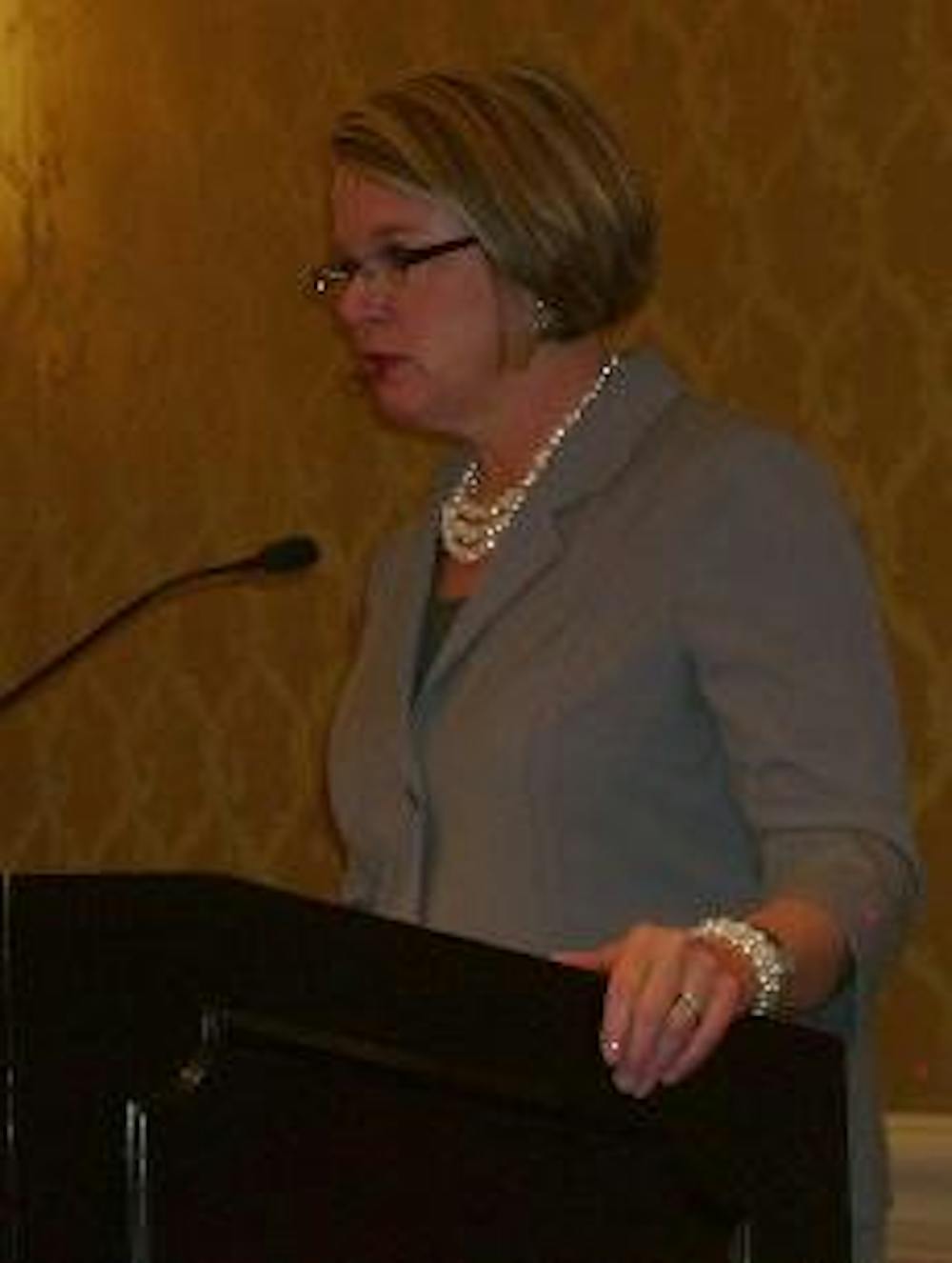U.S. colleges' support for Middle Eastern colleges could reduce the cycle of poverty in the region, U.S. Education Secretary Margaret Spellings said during a speech Thursday as part of the Lebanese American University Board of Trustees luncheon at D.C.'s Ritz-Carlton Hotel.
The Lebanese American University, with two campuses in Beirut and Byblos, is a member of the Association of American International Colleges and Universities.
Spellings marked the luncheon as an important step in improving relations between the U.S. and higher education in the Middle East.
"We are your partners; we support you and we truly appreciate all the work you have done and shown," Spellings said.
Spellings also said she was concerned about Middle Eastern colleges' availability to students who actually live in the region. She said Americans did not realize the need and benefits of improved higher education in the Middle East.
"If and when they do understand, there would be much more support," she said.
Spellings said she was pleased - but not satisfied - with higher education opportunities in the Middle East.
Joe Layman, a sophomore in the School of Public Affairs, said young people in the region would benefit from improved higher education opportunities.
"I believe that a college education can be more important in the Middle East because there is little opportunity there," he said.
Kristin Diwan, a professor in the School of International Service, said there is still a tremendous need for improvement in rich and poor areas of the region. In the wealthy areas of the region, there is an inequity between the demands for growing economies and the level of education. In poorer areas, overcrowding and poverty are detrimental to education, she said.
One negative aspect of having U.S.-supported universities in the Middle East is that many of the students attending are American. This ends up giving little benefit to people who actually live in the region, she said.
LAU Board of Trustees Chairman George Faris said the U.S. needs to make more financial aid available to American students traveling overseas. Middle Eastern countries can then give more money to its own students.
Kenzie Harrick, a sophomore in the College of Arts and Sciences, said she did not know these universities even existed.
"I think it's a great thing to give the option of higher education to people in the Middle East," Harrick said. "All Americans would be glad to know that some of their money allows people to have the same opportunities as us"





